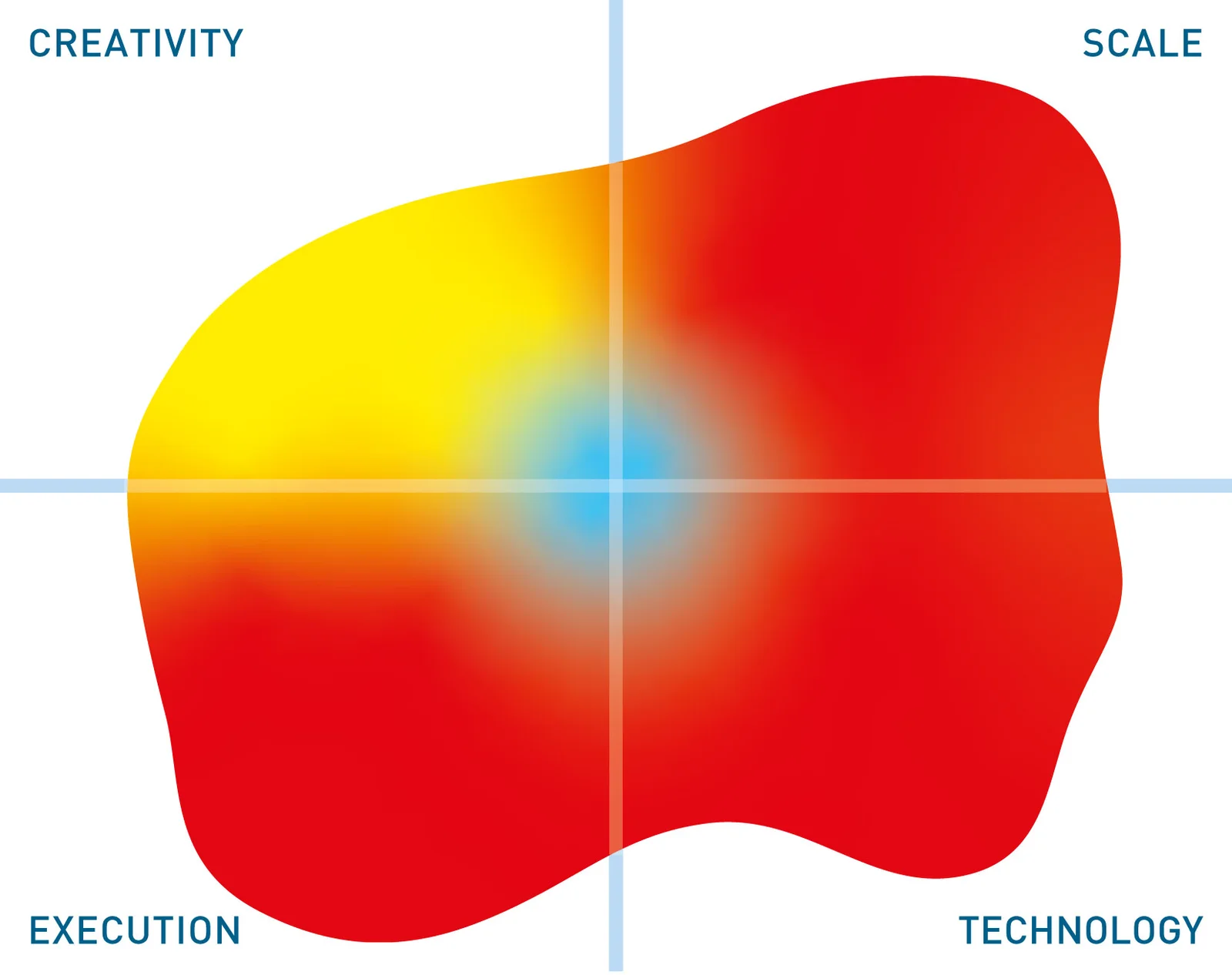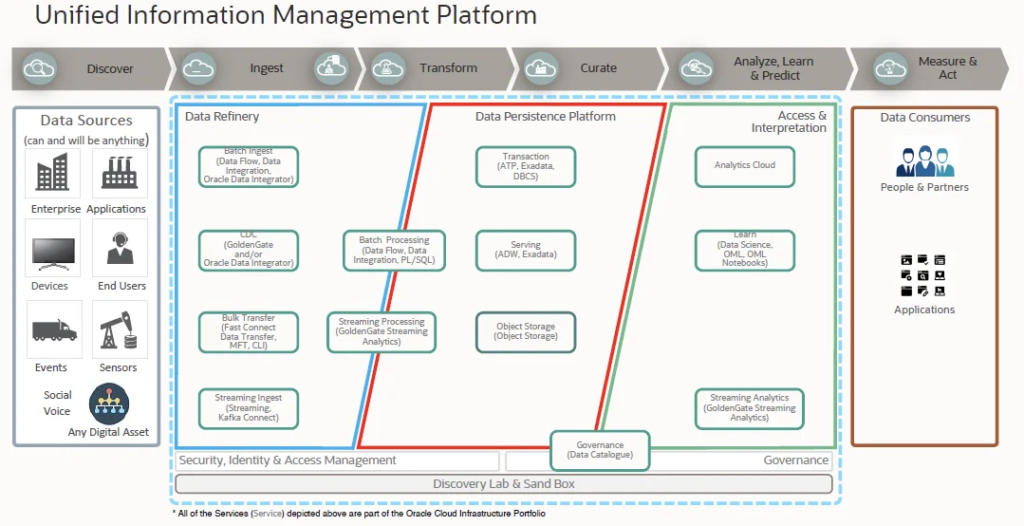Oracle Unified Information Management Platform
Update solution on March 3, 2021

As far as Oracle’s data management solutions are concerned, these span a wide range of capabilities, as illustrated in Figure 1, which positions these relative to Oracle’s wider portfolio. However, as far as supporting the establishment of (cloud-based) data warehouses and data lakes are concerned, these cover the whole gamut of data integration, data profiling and cleansing (data quality), data governance, data privacy and metadata management (data catalogues).

Fig 01 – Oracle data management in context
As far as data integration is concerned, Oracle offers both Oracle Data Integrator Cloud Enterprise Edition, which is a conventional ETL/ELT tool, and Oracle GoldenGate, which provides change data capture. There is also a separate Oracle Data Integrator Cloud for Big Data offering. Oracle Data Warehouse Builder also includes ETL capabilities as well as supporting data profiling. For data profiling more generally the company offers Oracle Data Profiler, which works in conjunction with Oracle Enterprise Data Quality. For data governance, Oracle Enterprise Data Governance is specifically concerned with sensitive data rather than, as its name might suggest, data governance more generally. It works in conjunction with Oracle Data Redaction, which provides dynamic data masking (or, more accurately, redaction) in conjunction with the Oracle database. For data governance per se there is no specific offering but relevant features are provided through Oracle Enterprise Metadata Manager and Oracle Enterprise Data Quality. Finally, Oracle Cloud Infrastructure (OCI) Data Catalog is a no-charge capability provided within OCI.
Figure 2 provides a more detailed view of Oracle’s relevant capabilities.
Oracle has been in the business of delivering data integration, data quality and associated technologies for many years and it offers all the sorts of features you would expect. However, there is a tendency to consider its tooling as more focused on Oracle environments than on supporting third parties. This is particularly notable in the newer products. For example, while the Data Catalog has the sorts of capabilities one would expect, it is limited to supporting Oracle databases (including MySQL), Hive and Kafka. That said, products such as GoldenGate and Oracle Data Integrator certainly support a broad range of environments and are definitely not limited to those of Oracle.

Fig 02 – The Oracle Unified Information Management Platform
Going back to Oracle Data Catalog, this is not, in our opinion, an “enterprise” data catalogue: it is not a catalogue of catalogues. For that you would need to implement Oracle Enterprise Metadata Management (OEMM), which does have significant support for third party environments, though it does not support ODPi Egeria. Despite its name, this is as much a data governance solution (with features such as a business glossary, data lineage and so forth) as it is one for metadata management. Unfortunately, however, OEMM is only available on-premises.
It is also worth noting Oracle Solution Patterns. The company has identified some 20 common use cases and is developing and delivering these as relevant offerings. From the perspective of the current discussion the “Data Lake (Raw Data to Curated Information Object Storage or Hadoop)” is most pertinent and its worth commenting that Oracle sees a ladder of capabilities from raw data to curated data to curated information, with increasing refinement providing easier access to, and interpretation of, that information.
Finally, one particular feature that we would like to have seen is some sort of facility to automate the process of data subject access requests (DSARs) within the context of GDPR and other similar regulations.
While you could argue about the features of Oracle’s solutions versus those of competitors (both for and against) the truth is that many of those rivals to do not have the completeness of vision that Oracle can provide. It doesn’t just provide the tools for creating and managing cloud and hybrid analytic environments but also the databases that underpin those analytics along with the capabilities that allow data scientists and others to build both machine learning and conventional analyses and visualisation of your data. The downside, of course, is that some functionality is optimised to run on Oracle databases, as opposed to representing more generic offerings. This also applies when it comes to understanding and exploring application data. The company offers significant capabilities when it comes to supporting its own applications and business models, but functionality to support comparable products from rival application providers is less evident.
The Bottom Line
We have to say that we find Oracle’s different data management options to be confusing. However, the company does offer a complete solution suite and if you are an Oracle user, in particular, you should certainly short-list Oracle for its data management capabilities; if you aren’t then you will probably need to look into its capabilities in more depth but in any case it remains a worthy contender.
Related Company
Connect with Us
Ready to Get Started
Learn how Bloor Research can support your organization’s journey toward a smarter, more secure future."
Connect with us Join Our Community
